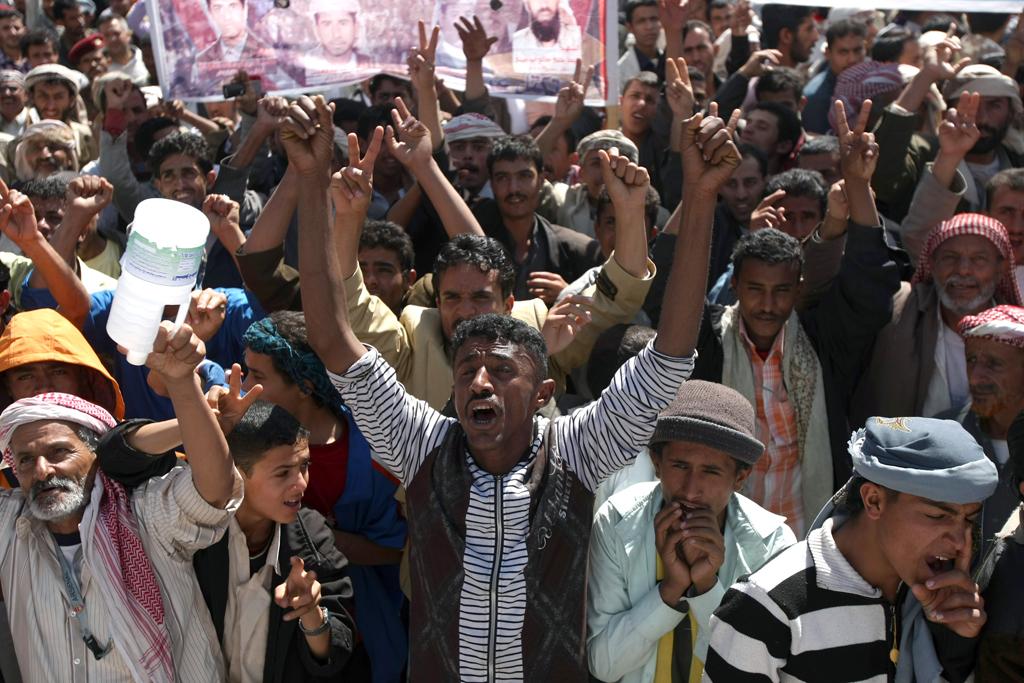Yemen president Saleh granted immunity (VIDEO)
Yemeni protesters shout slogans during a demonstration against the law of immunity pertaining outgoing President Ali Abdullah Saleh for the transfer of power after the upcoming February presidential elections, in Sanaa on January 9, 2012, as Yemen’s Prime Minister Mohammed Basindawa began a tour to the country’s oil-rich Gulf neighbours to seek urgently needed aid for an economy approaching collapse. AFP PHOTO/ MOHAMMED HUWAIS
Yemen’s cabinet has approved a law that would grant President Ali Abdullah Saleh and his subordinates immunity from prosecution as part of a larger transition agreement, according to the Associated Press.
The law grants amnesty not only to Saleh, but also to his aides in “all government, civil and military departments” during the entirety of his three decade long rule, reported the BBC.
Saleh has agreed to step down in February, on the condition that he and his family are granted immunity from prosecution for the attacks on anti-government protestors last year that left hundreds dead and thousands injured.
The cabinet passed the law despite nationwide protests demanding that Saleh be put on trial. Saleh is nominally in power until elections are held in February, while Vice President Abed Rabbo Mansour Hadi is supposed to be in control of government. However, Al Jazeera reported that Hadi is complaining of interference from Saleh and his allies after being called a traitor by Saleh loyalists. Hadi is threatening to leave Yemen’s capital, Sanaa, if Saleh continues to get in the way.
There is mounting concern that Saleh is manipulating the government so he and his family can maintain positions of power. The Los Angeles Times quoted an opposition member, Jamal Anam, saying, "Saleh has resisted stepping down for the last year and every time he's agreed to a deal he's broken his promise.”
More on GlobalPost: Fears mount Yemen president Saleh won't hand over power
The UN human rights chief, Navi Pillay, was quoted by the BBC saying the amnesty deal could violate Yemen’s international human rights obligations. She said, “Amnesties are not permissible if they prevent the prosecution of individuals who may be criminally responsible for international crimes including war crimes, crimes against humanity, genocide, and gross violations of human rights.”
The transfer of power agreement that Saleh signed in November 2011 was brokered by Saudi Arabia and backed by the United States, the European Union and the United Nations. He is scheduled to hand over power on Feb. 21, when elections are held electing his successor.
More on GlobalPost: Embattled Yemen president will not go to US
Watch below to see how Saleh's immunity is sparking protests in Yemen's capital:
The story you just read is not locked behind a paywall because listeners and readers like you generously support our nonprofit newsroom. If you’ve been thinking about making a donation, this is the best time to do it. Your support will get our fundraiser off to a solid start and help keep our newsroom on strong footing. If you believe in our work, will you give today? We need your help now more than ever!
